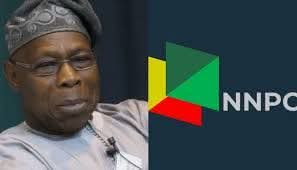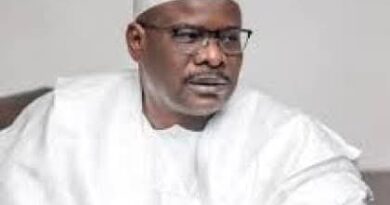Obasanjo doubts the operational working of Porthrcourt refinery & says why involve Dangote if it’s working
Former President Olusegun Obasanjo has expressed skepticism about the ongoing efforts to rehabilitate the Port Harcourt and Warri refineries, which have attracted significant attention and financial resources in recent years.
Obasanjo made this revelation during an exclusive interview with Channels Television, where he shared insights into the challenges surrounding Nigeria’s struggling refineries.
The former president explained that the Nigerian National Petroleum Company Limited (NNPC), now operating as a limited liability company, was aware of its limitations in managing the nation’s refineries but still insisted on fixing the refineries.
Obasanjo revealed that although the NNPC was aware of its inability to effectively manage the national refineries, it still rejected a $750 million offer from Aliko Dangote to manage the Port Harcourt, Warri and Kaduna refineries in 2007, during his administration.
Obasanjo said, “But I was told not too long ago that since that time, more than $2 billion has been squandered on the refineries, and they still will not work.”
He stressed that if a company like Shell rejected his offer to manage the refineries based on their reasons, “I will believe them.”
He questioned why NNPC is now working with Dangote, saying, “Not only make it (his refinery) work, he (Dangote) will make it deliver. And whether we announce our government refineries working or not working, it is like a man who plants 100 heaps of yam and says he planted 200 heaps after he harvests 100 heaps of yam, he will also harvest 100 heaps of lies.”
On December 31, 2024, Mele Kyari, the group chief executive officer (GCEO) of the NNPC, said the Warri Refining & Petrochemicals Company (WRPC) in Delta State was now operational.
On November 26, the NNPC said the Port Harcourt refinery had officially commenced crude oil processing.
Obasanjo also said he sought external help to rehabilitate and manage the facilities but faced resistance.
“I asked Shell to run the refineries for us and Shell said they wouldn’t. I asked them to take equity but they said no.
“Later on, I called the boss of Shell to come and tell me what the problem was and he gave me four or five reasons. He said, first of all, they make a major profit from upstream, not from downstream. He said they run downstream just to keep their head above water.
“Two, he said our refineries were too small: 60,000 barrels 100,000 barrels and I think 120,000 barrels. He said that at that time, the average refinery was going for 250,000 barrels.
“Three, he said our refineries were not well maintained. Fourth, he said that there was too much corruption around the activities of our refinery and they would not want to get involved in that.”
Obasanjo said after Shell’s refusal, Aliko Dangote, Africa’s richest man, put a team together and paid $750 million to operate the refineries through a public-private partnership.
“Aliko got a team together and they paid $750m to take part in public-private partnership (PPP) in running the refineries. My successor refunded their money and I went to my successor and told him what transpired. He said NNPC said they wanted the refinery and they could run it and I said but you know they cannot run it,” he narrated.
Obasanjo said he was told not too long ago that since that time, more than N2 billion dollars has been squandered on the refinery and they still would not work.
“If a company like Shell tells me what they told me, I will believe them. If anybody tells you now that it is working, why are they now with Aliko? And Aliko will make his own refinery work; not only make it work, he will make it deliver.”




